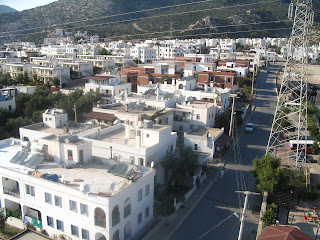Self confidence is a term used to describe how secure a person is in his own decisions and actions.
Person who are self-confident are those who knows their capacity to do something and then go ahead to do them.
Most people feel low self-confident at time or another, but if this is how you look at yourself all the time it is harmful.
A lack of self-confidence can have a variety of causes; the most common are Fear, Guilt, Negative thinking, unrealistic expectations, self-consciousness etc.
With some help and guidance, you can find the way to breakout the low self-confidence trap. Confidence can be developed.
7 simple ways to build self-confidence?
a) Love Yourself: One of the famous axioms is “How you can expect others to love you if you don’t love yourself”. Look into the mirror and say “Looking Good”, “Wow!! I Love Me”.
b) Praise and Compliments: A simple praise like ‘Nice Job’ or ‘Well done’,’ fantastic’ are always helpful to increase the confidence of the people. However, while praising someone keep in mind that praise should be genuine.
This is the technique you can use to boost the confidence of others. Similarly you can boost your self-confidence. For this ‘Self Talk’ is an excellent tool.
c) Good Company: Someone has rightly said that “Be Surrounded by Big People because big people think big while small people think small”. Don’t get involved with a person who discourage and diminish the confidence.
d) Successes: Log all your successes. You need to write those down. Whether it is the first webpage you completed; first song you played on the guitar, or the first 100 $ you made in business. Keep a record of your successes, great and small, and review them regularly.
e) Failure: Failure can actually boost your confidence because it is so beneficial to fail and find what is different.
f) Responsibility: Take full responsibility for your own actions. Don’t blame others for your failure.
g) Willpower: Create a goal that you really want to reach with a particular deadline. Take baby steps and use your will power until you succeed at reaching your goal.
Concentration
To concentrate is to direct your mental power or your efforts towards a particular activity, subject or problem.
The First step towards learning anything requires that you focus your
attentionto that which must be learnt.
Now get to the main point.
How to improve concentration:Here are some basic things to improve concentration:
1. Minimize all distracting influences: You will study more effectively if your attention is not being diverted from the task at hand. Some ways of avoiding distractions are:
- Have a definite area set aside for study purpose only.
- tell others of your study routine.
- try to make sure that you are not distracted by excessive background noise.
- Ensure that your study area is not too comfortable.
2. Prepare yourself for work: it is important to get yourself into the right mood to work and make start.
- Decide what you will cover beforehand and how much time you will spend.
It is more effective to work in short bursts(30 minutes – 1 hour) than one long sitting.
collect all the relevant study materials for the subject you intend to cover(books,calculator etc.) and lay out on your desk.
3. Start: There are many of “starting” a study task, especially if procrastination has become a problem.if you have
problems in starting a specific study activity(reading an article, doing some problems etc.) then here are some suggestion:
- Begin with an “entry-level” task.
this might be filling your notes, reviewing lecture notes, reading an abstract etc.
Allocate 15-30 minutes to getting involved, and then begin.
- Set yourself a reward for studying.
A reward could be watching your favourite T.V. program, a snack or ringing a friend.
- Don’t sit for long periods puzzling about what to do.
4. Maintain your concentration for as long as possible: The type of task you are doing will decide the duration of your concentration span. Writing an assignment or doing problems usually requires more mental effort than taking notes from a reference. If you lose concentration then some things you can do are:
- Ask yourself what distracted you.
If your train-of-thought was diverted by an unrelated problem(ex. another task you need to attend to, an idea about another subject etc.)then jot this down on a “
To Do” list so that you won’t forget.
if you have nagging problems of a personal nature(ex. financial or personal problems, relationship difficulties etc.) then these are likely to become a recurring obstacle to concentrating fully. it is strongly advised that you address any problem by speaking to someone helpful(such as a counselor) or take action to make sure that these problems re unlikely to interfere with your study.
- Try to re-connect with the task.
Re-read your last page or re-work the last calculation you did. If you still cannot progress then take a break.
- Measure your achievement so far.
you can often rekindle your motivation by appreciating what you have already done.
Self Confidence
Self confidence is a term used to describe how secure a person is in his own decisions and actions.
Person who are self-confident are those who knows their capacity to do something and then go ahead to do them.
Most people feel low self-confident at time or another, but if this is how you look at yourself all the time it is harmful.
A lack of self-confidence can have a variety of causes; the most common are Fear, Guilt, Negative thinking, unrealistic expectations, self-consciousness etc.
With some help and guidance, you can find the way to breakout the low self-confidence trap. Confidence can be developed.
7 simple ways to build self-confidence?
a) Love Yourself: One of the famous axioms is “How you can expect others to love you if you don’t love yourself”. Look into the mirror and say “Looking Good”, “Wow!! I Love Me”.
b) Praise and Compliments: A simple praise like ‘Nice Job’ or ‘Well done’,’ fantastic’ are always helpful to increase the confidence of the people. However, while praising someone keep in mind that praise should be genuine.
This is the technique you can use to boost the confidence of others. Similarly you can boost your self-confidence. For this ‘Self Talk’ is an excellent tool.
c) Good Company: Someone has rightly said that “Be Surrounded by Big People because big people think big while small people think small”. Don’t get involved with a person who discourage and diminish the confidence.
d) Successes: Log all your successes. You need to write those down. Whether it is the first webpage you completed; first song you played on the guitar, or the first 100 $ you made in business. Keep a record of your successes, great and small, and review them regularly.
e) Failure: Failure can actually boost your confidence because it is so beneficial to fail and find what is different.
f) Responsibility: Take full responsibility for your own actions. Don’t blame others for your failure.
g) Willpower: Create a goal that you really want to reach with a particular deadline. Take baby steps and use your will power until you succeed at reaching your goal.
.jpg)
.jpg)
.jpg)
.jpg)
.jpg)
.jpg)
.jpg)
.jpg)








































